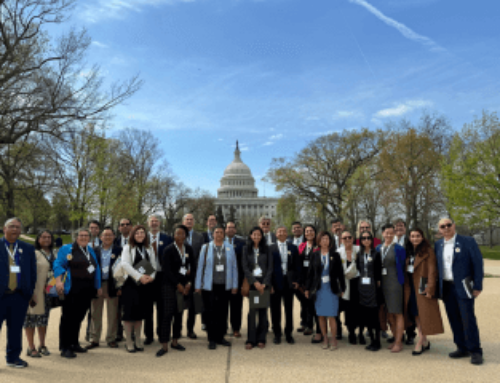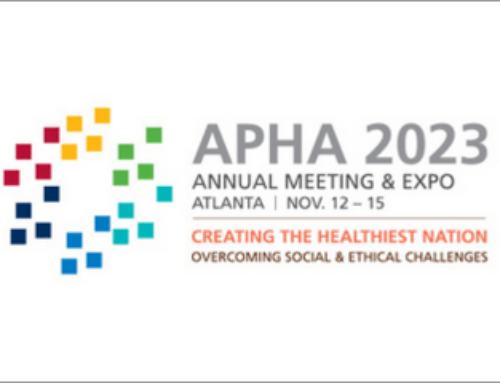 Dear Colleague,
Dear Colleague,
Historians will consider the turbulent 2016 presidential campaign as a dramatic sea change in U.S. politics. We began last year with two frontrunners facing what was expected to be a pro forma primary campaign season. However, by the start of the Summer Olympics in Brazil, both parties had witnessed tumultuous primary campaigns by viable upstart contenders. Each week of 2016 seemed to bear witness to greater political surprises culminating Nov. 8, 2016, when President-elect Donald Trump shocked the political establishment by claiming the White House in a stunning eleventh-hour victory.
When the new president and his administration settle into Washington later this month, the medical community can expect to encounter some uncertainty as congressional leaders begin to consider Donald Trump’s promise to repeal Obamacare and conduct a thorough reexamination of funding methods for Medicare and Medicaid. The changes in health care that will directly affect your practice include:
- The future of the Affordable Care Act (ACA) is uncertain. The day after the November elections, Speaker of the House Paul Ryan of Wisconsin and Senate Majority Leader Mitch McConnell of Kentucky declared the eventual repeal of the Affordable Care Act as a high priority for the 115th Congress. However, as the new Congress convenes, questions regarding the timing of the Affordable Care Act’s repeal and the implementation of new programs remain. In fact, since the GOP does not have a filibuster-proof majority in the Senate, Republicans may use the budget reconciliation process to pursue a partial repeal.
- On Jan. 1, 2017, CMS implemented its new value-based payment programs under the Medicare Access and CHIP Reauthorization Act (MACRA). In the rule, CMS created a new framework called the Quality Payment Program, which will allow eligible professionals to choose from two quality reporting paths: the Merit-based Incentive Payment System (MIPS) or the Alternative Payment Model (APM). Many health care groups praised CMS’ efforts to reduce clinicians’ burdens under the rule, but some stakeholders said CMS should delay certain requirements.
- In December 2016, President Obama signed into law the 21st Century Cures Act, which authorizes $6.3 billion in funding over the next decade for cancer research, the epidemic of opioid abuse, and mental health treatment. The act also helps the Food and Drug Administration (FDA) speed up drug approvals and pushes for better use of technology in medicine. It also allocates $4.8 billion for the National Institutes of Health (NIH) over the next 10 years to help fund biomedical research.
The AASM also was busy advocating for sleep in 2016. In June, Dr. Mark Hickey and I traveled with AASM staff to Capitol Hill to advocate before members of Congress for a resolution addressing the high rates of posttraumatic stress disorder (PTSD) and other complications facing our veterans. On July 13, our advocacy efforts were successful when Representative Sam Graves of Missouri introduced House Resolution 825 (H. Res. 825) recognizing the increased risk of sleep apnea among soldiers returning from active duty and the benefits of continuous positive airway pressure (CPAP) therapy on treating obstructive sleep apnea (OSA) in soldiers suffering from PTSD.
In July, AASM staff attended a Senate Finance Committee hearing that examined ways to improve and reform the physician self-referral “Stark” Law. Testimony was provided on how the Stark Law has become increasingly unnecessary and is a significant impediment to the value-based payment models that Congress and CMS are requiring under the MACRA rule.
In 2017, the AASM Political Action Committee (PAC) will continue to move forward on our PTSD and Stark initiatives, along with other important advocacy proposals:
- Introducing a resolution to raise awareness of the dangers of drowsy driving
- Establishing a Congressional Healthy Sleep Caucus
- Promoting the value of federal funding for sleep research
You can learn more about our initiatives in 2017 by going to the AASM Legislation webpage. I also urge you to make a donation to the AASM PAC to support our advocacy efforts.
Support of the AASM PAC is vital as the health care system changes. As illustrated above, health care continues to be a top agenda item for legislators and federal agencies. Decisions on reimbursement, EHRs and quality measures are a top priority in Washington, D.C., and we need to be at the table when these issues are debated. Unfortunately, sleep lags behind other specialties in PAC contributions. We need your help to make our voice heard so we can ensure that sleep is included with the changes in health care.
Your donation can be made when you renew your AASM membership or by donating online. If you prefer to send a payment via credit card or check, please submit your payment to:
AASM PAC
2510 N Frontage Rd
Darien, IL 60561
Please note that the AASM PAC can only accept contributions from AASM members who reside in the United States, which includes the District of Columbia (D.C.) and territories such as Puerto Rico, Guam and the Virgin Islands. Contributions to the AASM PAC must be made using the AASM member’s personal credit card or check. Funds from corporations cannot be used. Donations to the AASM PAC are voluntary and are not tax deductible.
A member of the AASM can donate up to $5,000 per calendar year to the AASM PAC, and I encourage each member to donate a minimum of $100. One hundred percent of your contributions will be used to educate and financially support lawmakers who will look favorably upon the specialty of sleep medicine. All contributors will be recognized at the annual SLEEP meeting.
I thank you in advance for your generosity and support. If you would like further information on the AASM advocacy initiative, please contact the AASM Government Relations and Health Policy Department at policy@aasm.org.
Sincerely,
David Kuhlmann, MD
AASM PAC Chair








